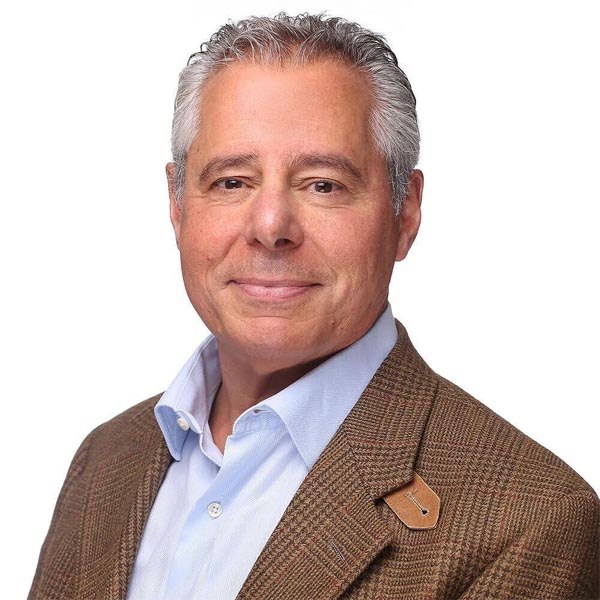Contact Dr. Campanile
Meet Dr. Campanile, The Functional Heart Doctor and his Integrative Cardiology Practice Serving Patients in Middle East, Asia

Functional Cardiologist Integrative Cardiology serving patients in Middle East
Welcome to the practice of Dr. Giovanni Campanile, MD, FACC – The Functional Heart Doctor, a distinguished cardiologist whose innovative approach to heart health is paving the way for a new era of personalized and preventive care. Dr. Campanile is a board-certified clinical and preventative cardiologist with an illustrious career marked by dedication, innovation, and a relentless pursuit of advancing cardiac care. His credentials stand testament to his commitment to blending modern traditional cardiology with naturopathic holistic practices.
In his relentless quest for advancing heart health, Dr. Campanile has undertaken pioneering roles in the field:
- Founding Director: He laid the foundation for the Dean Ornish Reversal of Heart Disease Program for Atlantic Health, spearheading efforts to showcase the impact of lifestyle changes on cardiac wellness.
- Director of Integrative Nutrition: At The Chambers Center for Well-Being at Morristown Medical Center and Atlantic Health, Dr. Campanile has led the way in incorporating nutrition as a cornerstone of cardiovascular well-being.
Dr. Campanile is a Harvard-trained Cardiologist, having trained at renowned institutions such as Lahey Clinic, Beth Israel Deaconess Medical Center, Boston, and Massachusetts General Hospital. He is the former director of the Dean Ornish Intensive Cardiac Rehabilitation Program and director of Integrative Nutrition and Integrative Cardiology at the Chambers Center for Well-Being. With quintuple board certifications in Internal Medicine, Cardiology, Interventional Cardiology, the American Board of Integrative and Holistic Medicine, and the American Board of Anti-Aging and Regenerative Medicine, Dr. Campanile brings a comprehensive and multidisciplinary approach to heart health.
As an Assistant Professor of Medicine at Rutgers New Jersey Medical School, Dr. Campanile has been an instructor for doctors specializing in cardiology at prestigious institutions such as Lenox Hill Hospital in NYC and Columbia University Mount Sinai, Miami.
Functional Cardiologist Integrative Cardiology Services
Dr. Giovanni Campanile, MD, FACC – The Functional Heart Doctor offers a range of services that integrate traditional cardiology with holistic and naturopathic approaches. These services include:
Functional Cardiology
Functional cardiology focuses on understanding the root causes of heart disease and developing personalized treatment plans that address these underlying factors. Dr. Campanile takes a lifestyle approach to treating heart disease, considering factors such as nutrition, stress management, sleep patterns, and exercise habits. By addressing the root causes of heart disease, functional cardiology aims to improve overall heart health and prevent future cardiac events.
Integrative Cardiology
Integrative cardiology combines the best practices of conventional cardiology with evidence-based complementary therapies. Dr. Campanile integrates nutrition, supplements, mind-body techniques, and other holistic approaches into his treatment plans to optimize cardiovascular health. By considering the whole person and their unique needs, integrative cardiology offers a comprehensive approach to heart care.
Holistic Cardiology
Holistic cardiology emphasizes the interconnectedness of the body, mind, and spirit in achieving optimal heart health. Dr. Campanile takes a holistic approach by addressing not only physical symptoms but also emotional well-being and lifestyle factors that impact heart health. By promoting balance and harmony in all aspects of life, holistic cardiology supports long-term cardiovascular wellness.
Naturopathic Cardiology
Naturopathic cardiology combines the principles of naturopathic medicine with cardiology to provide a natural and holistic approach to heart health. Dr. Campanile incorporates natural therapies, such as herbal medicine, nutritional supplements, and lifestyle modifications, into his treatment plans. By supporting the body’s innate healing abilities, naturopathic cardiology aims to restore and maintain optimal heart function.
Alternative Cardiology
Alternative cardiology explores non-traditional approaches to heart health that complement conventional medical treatments. Dr. Campanile considers alternative therapies, such as acupuncture, yoga, and meditation, as adjunctive treatments to support cardiovascular well-being. By offering a range of options, alternative cardiology provides patients with choices for managing their heart health.
Preventative Cardiology
Preventative cardiology focuses on identifying and addressing risk factors before they lead to heart disease. Dr. Campanile utilizes advanced lipid testing and imaging techniques to assess cardiovascular health and develop personalized prevention strategies. By proactively managing risk factors such as high blood pressure, high cholesterol, and diabetes, preventative cardiology aims to reduce the incidence of heart disease.
Nutritional Cardiology
Nutritional cardiology recognizes the significant impact of nutrition on heart health. Dr. Campanile incorporates nutrition as a cornerstone of his treatment plans, emphasizing the importance of a heart-healthy diet in preventing and managing cardiovascular conditions. By providing personalized dietary recommendations and guidance, nutritional cardiology supports optimal heart function.
Reversal of Heart Disease
The reversal of heart disease program offered by Dr. Campanile is based on the pioneering work of Dean Ornish. This comprehensive program combines lifestyle changes such as a plant-based diet, exercise, stress management, and social support to reverse the progression of heart disease. By addressing the underlying causes of heart disease, this program aims to improve heart function and overall well-being.
Nutrition & Lifestyle Change
Dr. Campanile recognizes the critical role of nutrition and lifestyle in preventing and managing heart disease. He provides guidance on making sustainable changes to diet, exercise habits, stress management, and sleep patterns. By empowering patients to make positive lifestyle choices, Dr. Campanile helps them achieve long-term heart health.
Middle East: A Unique Geographical Region
The Middle East is a region rich in history, culture, and diverse landscapes. From ancient civilizations to modern metropolises, the Middle East offers a unique blend of tradition and innovation. Let’s explore some fascinating aspects of this captivating region:
Landmarks
The Middle East is home to iconic landmarks that have stood the test of time. From the Pyramids of Giza in Egypt to the ancient city of Petra in Jordan, these architectural marvels showcase the ingenuity and craftsmanship of ancient civilizations. The Burj Khalifa in Dubai stands tall as the world’s tallest building, symbolizing the region’s ambition and modernity.
Historical Facts
The Middle East has been a cradle of civilization for thousands of years. It is the birthplace of major religions such as Islam, Christianity, and Judaism. The region has witnessed significant historical events, including the rise and fall of empires like the Persian Empire, Ottoman Empire, and Byzantine Empire. The Middle East’s historical legacy continues to shape its cultural identity.
Geographical Features
The Middle East boasts diverse geographical features that range from vast deserts to fertile river valleys. The Arabian Desert stretches across much of the region, while the Nile River in Egypt provides a lifeline for agriculture and civilization. The Dead Sea, known for its high salt content, offers a unique natural phenomenon where one can effortlessly float on its surface.
Environmental Factors and Heart Health
The Middle East’s environmental factors can have an impact on heart health. The region experiences extreme temperatures, with hot summers and mild winters. High temperatures can increase the risk of dehydration and heat-related illnesses, which can strain the cardiovascular system. It is crucial for individuals in the Middle East to stay hydrated, seek shade, and take precautions during hot weather.
Air pollution is another environmental factor that can affect heart health in the Middle East. Rapid urbanization and industrialization have led to increased levels of air pollution in some cities. Fine particulate matter and pollutants from vehicle emissions can contribute to respiratory problems and cardiovascular diseases. It is essential to minimize exposure to air pollution by staying indoors during peak pollution hours and using air purifiers when necessary.
The Middle East’s cuisine, known for its rich flavors and spices, can also impact heart health. Traditional dishes often include ingredients such as olive oil, whole grains, legumes, and fresh fruits and vegetables, which are beneficial for cardiovascular health. However, some dishes may be high in saturated fats, sodium, and added sugars. Dr. Campanile works with patients in the Middle East to develop personalized dietary plans that promote heart-healthy eating habits.
Contact Information
For more information or to schedule an appointment with Dr. Giovanni Campanile, MD, FACC – The Functional Heart Doctor:
Phone: 973-396-1781
Email: info@functionalheart.com
Dr. Giovanni Campanile, MD, FACC – The Functional Heart Doctor serves patients in Middle East, providing comprehensive and personalized care for optimal heart health.
If you are located outside of the New York City Metro Region or unable to travel to his offices from Middle East, Dr. Campanile will meet with you through Zoom, bringing you the benefits of enhanced functional heart health and overall well-being.
Functional Heart has some motivational quotes to inspire you!
Dr. Campanile proudly serves patients in the following regions in the world:
Giovanni Campanile, M.D., The Functional Heart Doctor recommends these organizations, their content, and material for information about the Integrative Cardiology Practice industry:
Functional Heart’s Recent News:
Fun Facts of Middle East, Asia
- Geographies: Includes countries like Iran, Iraq, Saudi Arabia, Yemen, Oman, UAE, Qatar, Bahrain, Kuwait, Israel, Jordan, Lebanon, Syria, and Turkey.
- Historical Significance: Cradle of several ancient civilizations and religions including Judaism, Christianity, and Islam.
- Interesting Facts: Al-Qarawiyyin University in Fez, Morocco, founded in 859, is often regarded as the oldest university in the world.
- Famous for: Known for rich cultural heritage, ancient history, and diverse cuisines.
- Influences: Influential in the world literature through Arabic literature, Persian literature, and Turkish literature.
- History: Significant historical events include the rise and fall of many empires, and more recently, the Arab-Israeli conflict.
- Tourist Attraction: Tourist attractions include the Pyramids of Giza in Egypt, Petra in Jordan, and Istanbul in Turkey.
- Recreation: 1,912
- Invention: The invention of writing systems including cuneiform and hieroglyphics.
- Page ID: Middle_East_1009
- Set ID: Regions_Set


